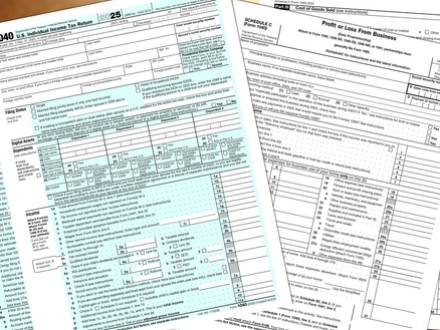Recent Blog Posts
Appeals Court Addresses Self-Employment Tax for Limited Partners
 The tax laws in the United States change regularly, often because of court rulings that may determine who is subject to certain taxes or what exceptions may be available. Keeping track of these changes can be difficult, especially when rulings may only apply to people in certain areas of the country. One recent ruling by the Fifth Circuit Court of Appeals could affect some taxpayers who pay self-employment taxes, but questions remain about who will be affected or how subsequent rulings may change the tax landscape.
The tax laws in the United States change regularly, often because of court rulings that may determine who is subject to certain taxes or what exceptions may be available. Keeping track of these changes can be difficult, especially when rulings may only apply to people in certain areas of the country. One recent ruling by the Fifth Circuit Court of Appeals could affect some taxpayers who pay self-employment taxes, but questions remain about who will be affected or how subsequent rulings may change the tax landscape.
To stay on top of changes to tax laws, it is a good idea to consult with a tax lawyer. Individual taxpayers and businesses can receive guidance to help them understand how certain laws and court rulings will apply to them. Legal representation can also be beneficial when dealing with the IRS, either during tax audits or when resolving disputes in tax court or other venues.
Potential Changes to the IRS’s Voluntary Disclosure Practice in 2026
 The penalties that taxpayers may face when they fail to file the correct information with the IRS or do not pay taxes as required can be significant. Failure-to-file and failure-to-pay penalties can add up to tens of thousands, hundreds of thousands, or even millions of dollars for some taxpayers. In cases where taxpayers are uncertain about their requirements or the consequences they may face, they may not know what steps they can take to address these issues and minimize their potential penalties.
The penalties that taxpayers may face when they fail to file the correct information with the IRS or do not pay taxes as required can be significant. Failure-to-file and failure-to-pay penalties can add up to tens of thousands, hundreds of thousands, or even millions of dollars for some taxpayers. In cases where taxpayers are uncertain about their requirements or the consequences they may face, they may not know what steps they can take to address these issues and minimize their potential penalties.
The IRS’s Voluntary Disclosure Practice can often provide benefits for taxpayers in these situations. By coming forward, disclosing the proper information to the IRS, and taking steps to remedy any existing issues, taxpayers may be able to minimize the penalties that may apply while avoiding the possibility of criminal prosecution. As the IRS makes updates to its Voluntary Disclosure program, taxpayers can work with an attorney who has a strong understanding of the applicable tax laws to ensure that they take the correct steps to disclose information while minimizing their financial losses.
California Office of Tax Appeals Addresses Out-of-State Residency
 There are some situations where taxpayers may believe that taxes or penalties were assessed incorrectly, and they can take steps to contest the amounts that they may be required to pay. However, the correct procedures must be followed when doing so. If a taxpayer fails to demonstrate that the assessment of taxes or penalties was incorrect, their appeals may fail. This issue was illustrated recently in a decision by California’s Office of Tax Appeals (OTA).
There are some situations where taxpayers may believe that taxes or penalties were assessed incorrectly, and they can take steps to contest the amounts that they may be required to pay. However, the correct procedures must be followed when doing so. If a taxpayer fails to demonstrate that the assessment of taxes or penalties was incorrect, their appeals may fail. This issue was illustrated recently in a decision by California’s Office of Tax Appeals (OTA).
When challenging taxes or penalties at the state or federal level, it is important to make sure all legal requirements are met. An attorney who has experience handling tax issues with the IRS and with California state tax authorities can provide the legal guidance and representation needed to help improve the outcome in these cases.
What Defenses Can Taxpayers Use Against IRS Penalties?
 The penalties that the IRS may impose when taxpayers fail to meet their tax obligations can be steep. These penalties may apply for the failure to file tax returns or other tax forms on time, the failure to pay taxes that are owed, or providing incorrect information on tax forms. Fortunately, there are several options that may be available to taxpayers to address and defend against these penalties.
The penalties that the IRS may impose when taxpayers fail to meet their tax obligations can be steep. These penalties may apply for the failure to file tax returns or other tax forms on time, the failure to pay taxes that are owed, or providing incorrect information on tax forms. Fortunately, there are several options that may be available to taxpayers to address and defend against these penalties.
Understanding the appropriate defenses is not always easy due to complex tax laws and new developments that take place as cases are heard in tax courts, district courts, appeals courts, and the U.S. Supreme Court. For taxpayers who are facing potential penalties, the assistance of an experienced tax lawyer can be crucial. An attorney can provide guidance on the laws that may apply in a specific case and the defenses that may be successful.
When Can an Employer Receive Section 530 Relief for Worker Misclassification?
 In some situations, employers may classify certain workers as independent contractors. However, they could be penalized for worker misclassification if they incorrectly treat workers as independent contractors when the workers should have been classified as employees. When questions about worker classification arise during a tax audit, an employer may have an option for relief through Section 530 of the Revenue Act of 1978.
In some situations, employers may classify certain workers as independent contractors. However, they could be penalized for worker misclassification if they incorrectly treat workers as independent contractors when the workers should have been classified as employees. When questions about worker classification arise during a tax audit, an employer may have an option for relief through Section 530 of the Revenue Act of 1978.
Receiving Section 530 relief will involve some complex requirements. During a tax audit, representation from an experienced tax lawyer can help ensure that an employer can demonstrate that they qualify for relief. A skilled lawyer can provide the assistance needed to minimize the potential penalties an employer may face and address other tax-related concerns.
IRS to Provide Penalty Relief for Reporting Requirements Related to Tips and Overtime
 One of the promises made by Donald Trump during the 2024 presidential campaign was to eliminate taxes on tips and overtime. He delivered on that promise when Congress passed the One, Big, Beautiful Bill Act (OBBBA). This law did not completely eliminate taxes on tips and overtime, but it does allow for certain workers to claim deductions for tips and overtime pay. However, it also created new requirements for employers to report tips and overtime to employees. There has been some confusion about these requirements and the penalties that may apply if they are not met, but the IRS has taken steps to address these issues for the 2025 taxable year.
One of the promises made by Donald Trump during the 2024 presidential campaign was to eliminate taxes on tips and overtime. He delivered on that promise when Congress passed the One, Big, Beautiful Bill Act (OBBBA). This law did not completely eliminate taxes on tips and overtime, but it does allow for certain workers to claim deductions for tips and overtime pay. However, it also created new requirements for employers to report tips and overtime to employees. There has been some confusion about these requirements and the penalties that may apply if they are not met, but the IRS has taken steps to address these issues for the 2025 taxable year.
When addressing changes to tax laws and reporting requirements, employers may need to take steps to change their procedures, and they may need to determine how to respond to potential IRS penalties. An attorney who has a strong understanding of the tax laws that apply to employers and the changes that have been made to the U.S. Tax Code can provide guidance on employment tax issues and the best ways to defend against penalties.
IRS Encourages Taxpayers to Use Post Appeals Mediation
 There are numerous reasons why taxpayers may take steps to appeal the decisions made by the IRS. Tax appeals can address unfavorable decisions made during tax audits, or they may be related to the assessment of penalties by the IRS. Even if appeals are unsuccessful, taxpayers may still have options. Currently, the IRS is taking steps to encourage the use of Post Appeals Mediation (PAM), which may allow cases to be resolved without the need for litigation.
There are numerous reasons why taxpayers may take steps to appeal the decisions made by the IRS. Tax appeals can address unfavorable decisions made during tax audits, or they may be related to the assessment of penalties by the IRS. Even if appeals are unsuccessful, taxpayers may still have options. Currently, the IRS is taking steps to encourage the use of Post Appeals Mediation (PAM), which may allow cases to be resolved without the need for litigation.
Tax appeals can be complicated, and they may not always lead to favorable results. Taxpayers who wish to appeal the decisions made by the IRS or who need to determine how to move forward after an unsuccessful appeal can work with an experienced tax lawyer to address these issues. An attorney who has an understanding of tax laws and the procedures followed during appeals and litigation can provide guidance on whether Post Appeals Mediation or other forms of alternative dispute resolution (ADR) may be used to help a taxpayer achieve their goals.
Appeals Court Decision May Affect FBAR Penalties
 U.S. taxpayers who own foreign assets are subject to a number of requirements, and they may face penalties if they fail to report information to the IRS correctly. One of the key issues that may affect taxpayers with foreign investments is the requirement to file a Foreign Bank and Financial Account Report (FBAR). The failure to do so can lead to serious penalties, including large fines. However, a recent court ruling may affect the penalties that may be assessed in these cases.
U.S. taxpayers who own foreign assets are subject to a number of requirements, and they may face penalties if they fail to report information to the IRS correctly. One of the key issues that may affect taxpayers with foreign investments is the requirement to file a Foreign Bank and Financial Account Report (FBAR). The failure to do so can lead to serious penalties, including large fines. However, a recent court ruling may affect the penalties that may be assessed in these cases.
Understanding the ways tax laws and policies may change due to court decisions or other actions by the government can be difficult for the average person. An attorney with an understanding of tax laws can provide guidance for taxpayers, helping to determine the best ways to respond to IRS inquiries or defend against penalties.
California Tax Regulations for Technology Transfer Agreements May Change
 Due to rapid technological advancement, federal and state tax laws may take time to catch up with the ways people use technology and the ways computer hardware and software are sold or licensed. In recent years, there has been some confusion about how computer software is taxed in California, including the sales and use taxes that may apply to Technology Transfer Agreements. Some proposed changes to state tax regulations may help to clarify this issue.
Due to rapid technological advancement, federal and state tax laws may take time to catch up with the ways people use technology and the ways computer hardware and software are sold or licensed. In recent years, there has been some confusion about how computer software is taxed in California, including the sales and use taxes that may apply to Technology Transfer Agreements. Some proposed changes to state tax regulations may help to clarify this issue.
As tax laws change, taxpayers will need to understand their legal requirements to ensure that taxes will be paid correctly. Small businesses or other companies involved in Technology Transfer Agreements can work with an experienced attorney to make sure all tax-related issues have been addressed while avoiding potential penalties.
Paper Checks Will No Longer Be Available for IRS Tax Refunds
 In the 21st century, financial transactions are often conducted digitally. Direct deposits have eliminated the need for paper checks in many cases, although there are still some situations where they may be used. Due to recent policy changes, the IRS will be eliminating the use of paper checks. While this is meant to increase efficiency and cut down on costs, it may put some taxpayers in a difficult position. For example, foreign taxpayers who do not have accounts with financial institutions in the United States may encounter problems with receiving refunds.
In the 21st century, financial transactions are often conducted digitally. Direct deposits have eliminated the need for paper checks in many cases, although there are still some situations where they may be used. Due to recent policy changes, the IRS will be eliminating the use of paper checks. While this is meant to increase efficiency and cut down on costs, it may put some taxpayers in a difficult position. For example, foreign taxpayers who do not have accounts with financial institutions in the United States may encounter problems with receiving refunds.
People who are unsure about how they may be affected by changes to tax laws or IRS policies can consult with an attorney to determine their options. By addressing these issues, taxpayers can make sure they will be able to receive tax refunds correctly.









